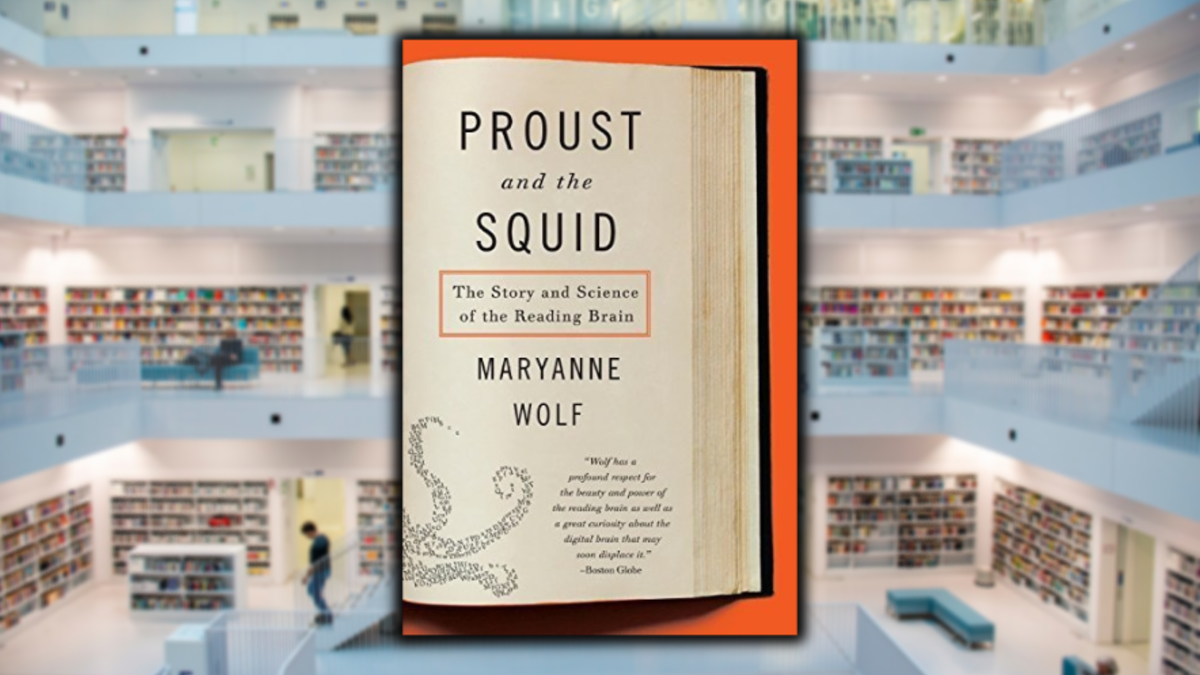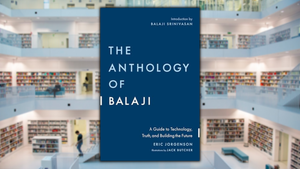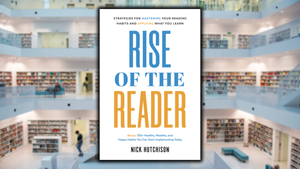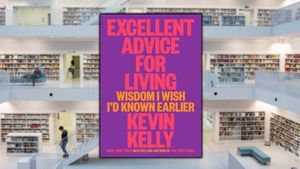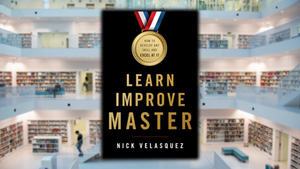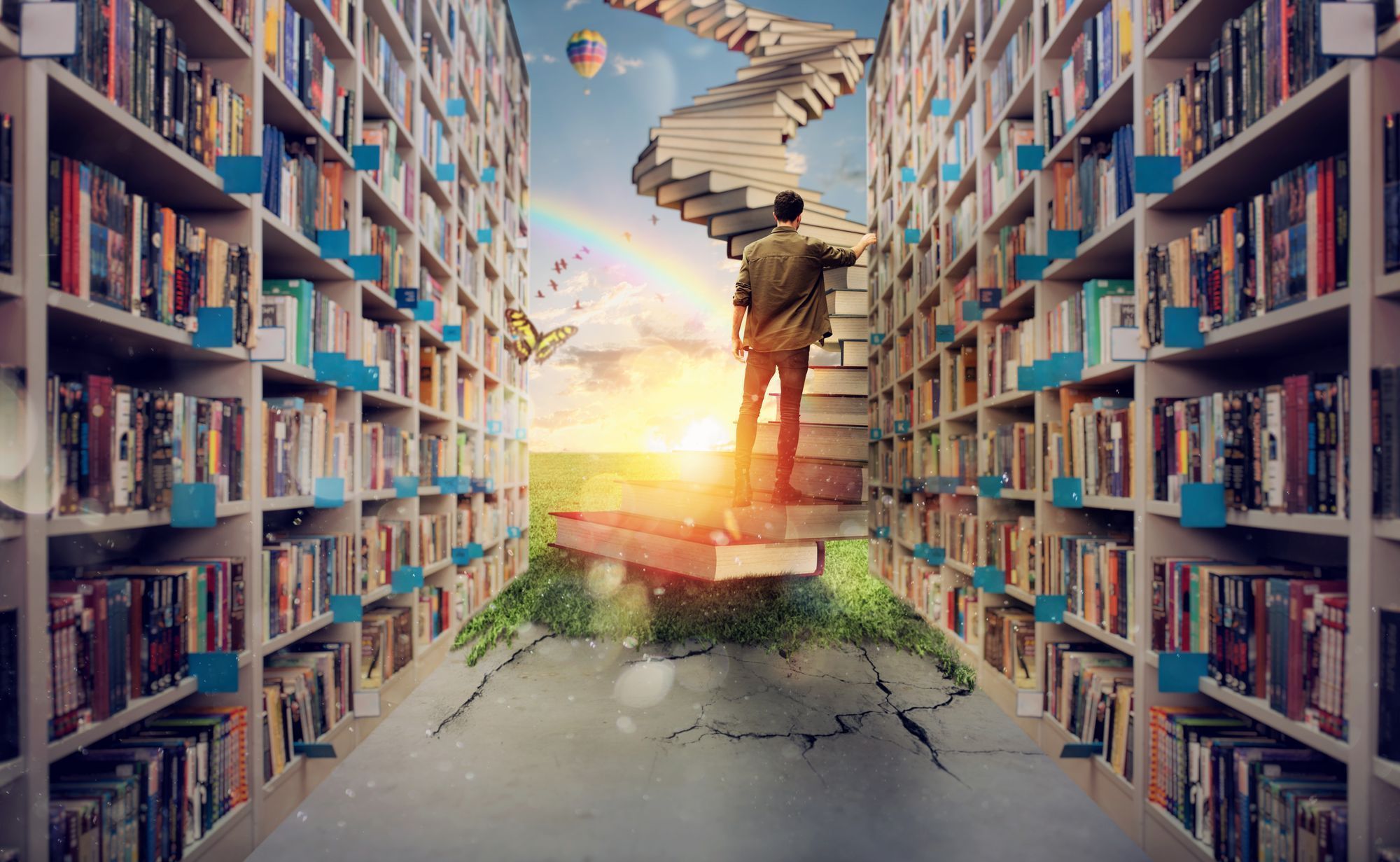
This Book is For:
*People who are interested in learning about how the miracle of reading actually occurs in the human brain, and all the reasons why it might never have happened.
*Anyone who is the parent of a young child - or who is thinking of becoming one - and who wants to know exactly how to give their children the best possible start in life.
*Teachers and educators who want to give their students an advantage in the classroom, and/or who teach dyslexic children and want to know more about the condition, its causes, and some possible interventions.
*Lifelong learners who just love to read and want to learn more about the fascinating science behind their favorite activity.
Summary:
“I could not remember when the lines above Atticus's moving finger separated into words, but I had stared at them all the evenings in my memory - anything Atticus happened to be reading when I crawled into his lap every night. Until I feared I would lose it, I never loved to read. One does not love breathing."
-To Kill a Mockingbird
There is a "before" and "after" point of learning to read that is often the defining moment in a person's life - and especially a child's. Every book is a door to an alternate future, and tragically, for anyone who never learns to read, those doors remain forever closed.
Magically, books are also windows into the hearts and minds of others, not to mention that the best books also represent paths back to ourselves.
Books are so many things to so many people, but how does the miracle of reading actually occur? What happens inside the brain of people just learning to read?
This exact process is the focus of Proust and the Squid, world-renowned cognitive neuroscientist and scholar of reading Maryanne Wolf's investigation into the development and functioning of the reading brain.
Stunningly, human beings were never meant to read. There are no genes that code for the development of reading skills, and so each human brain has to rearrange itself in the process of learning how to read, moving beyond its original state to learn how to make sense of these strange, squiggly markings on the page.
As it turns out, squids only make two cameo appearances in the book (pages 5-6, and page 226 in my version) and are used to reference early neuroscience studies on squid brains, but Proust is invoked as a metaphor for the richness of the reading process, and Proust's essay, On Reading, provided the initial burst of inspiration for this book.
Ironically for a book about reading, parts of it are fairly difficult to read, but the extra effort is worth it as Dr. Wolf deep dives into the fascinating and fragile history of reading, which exact neural pathways and connections are involved in the reading process and why, as well as the challenges, difficulties, and even opportunities presented by dyslexia, where the normal development of reading skills is derailed.
Reading doesn't occur naturally in human beings, which is why all these new neural connections need to develop in the right order and at the right time if a child is going to grow up to become a reader. For a variety of reasons that Wolf explores in the book, this doesn't always happen, many times with tragic results.
For example, in her other book, Reader, Come Home, she relates the fact that in the US, the Bureau of Prisons uses fourth-grade reading outcomes to predict how many prison beds they're likely to need in the future. As Wolf relates:
“The average young middle-class child hears 32 million more spoken words than the young underprivileged child by age 5.”
That number is just wild, and it speaks all the more strongly to the incredible importance of reading to your children when they're young, nurturing their love of reading, and doing everything possible to instill a genuine love of the printed word. It makes such a huge difference to the entire rest of their lives.
Sometimes I think that the most amazing thing about the whole process of reading is that we can learn to do it at all. Many people all over the world - even adults - still can't, and this is always and everywhere a tragedy; a failure of education, support, and love.
Another source of endless astonishment is that even though it took humans around 2,000 years to develop the kind of written language we have now, we expect children to learn it in about 2,000 days.
Considering the length of time the human species has existed, it's only in the most recent portion of our history that reading and writing actually came to be, and yet it's crucial to every single possible future we may end up creating for ourselves.
Proust and the Squid does a wonderful job of taking you through a tour of that history, analyzing what we're doing right - and wrong - right now, and even daring to express optimism for that future.

Key Ideas:
#1: The Human Brain Was Never Designed to Be Able to Read
“Reading can be learned only because of the brain's plastic design, and when reading takes place, that individual brain is forever changed, both physiologically and intellectually."
The only reason why human beings can read in the first place is that the development of writing demanded that the brain rearrange itself in order to understand and make use of it.
Put another way, when humans started writing, our brains rearranged themselves to take on the challenge of reading.
Our brains were able to do this because of a phenomenon called neuroplasticity, which basically means that the brain can change and adapt to the demands that we place upon it, and what we ask our brains to do. The human brain isn't infinitely malleable - there are hard limits on an individual's intelligence, processing speed, etc. - but our brains do change shape according to the information, experiences, and demands that they are exposed to.
This is how reading developed. The brain is composed of around 100 billion neurons that are connected to each other and form pathways associated with certain tasks. So, when the first humans invented writing (independently, at various times throughout history) as a way to record economic transactions and other things, the human brain had to go to work, reshaping itself to accommodate these new demands.
Eventually, as we become more advanced readers, these new neural pathways form in such a way that you and I are able to decode the meaning of these strange, visual symbols - often at rapid speed. This is nothing less than a miracle, and it's one that was never guaranteed to take place, either now or in the past. There is no gene for reading, and so reading skills have to be intentionally learned by every new reader.
When you think about it, this is a pretty wildly magical process, yet we just carry on like it's normal! Truthfully, however, the ability to read is nothing less than an achievement.
From not knowing anything about what these weird lines are, or that they could actually point to something in the real world, we eventually get to the point where reading is automatic and where we can't not read the words in front of us (if they're in our native language).
Here's how Alberto Manguel, author of A History of Reading, describes it:
“And yet, all of a sudden, I knew what they were; I heard them in my head, they metamorphosed from black lines and white spaces into a solid, sonorous, meaningful reality. I had done this all by myself. No one had performed the magic for me. I and the shapes were alone together, revealing ourselves in a silently respectful dialogue. Since I could turn bare lines into living reality, I was all-powerful. I could read.”
Through this process of specialization and automaticity, what used to be impossible for us, literally outside the range of our possibilities, now happens in just milliseconds. If that's not a gorgeous miracle, I have no idea what is.
There's much more to this process than I've laid out here, of course, and in the book, Dr. Wolf describes how, when we see letters we know, our brain's activity nearly triples, especially in parts of the brain dedicated to language processing, hearing, visualization, and abstract concepts.
Proust and the Squid is often highly technical, but if you want a more in-depth look at this process, then you're likely to be Wolf's ideal reader, in which case you may want to move the book higher up on your reading list.
#2: The Most Powerful Advantage You Can Give to Your Children
“Learning to read begins the first time an infant is held and read a story. How often this happens, or fails to happen, in the first five years of childhood turns out to be one of the best predictors of later reading."
Helping your child to become a reader is probably one of the greatest gifts you could ever give to them.
It goes way beyond the obvious benefits like the (potentially) increased earning power that comes with gaining higher levels of education; becoming a reader is perhaps the greatest foundation for becoming a deeply thoughtful, intelligent, calm, kind, and courageous member of a society that desperately needs all of those things.
More to the point, this foundation is laid early in a child's life, and if it's not, there's no getting that time back. As Dr. Wolf states:
“In some environments, the average young middle-class child hears 32 million more spoken words than the young underprivileged child by age five."
As a parent, you are uniquely privileged to be able to offer this gift to your children, and the benefits will keep piling up long after they go off and read on their own.
Even the famous German playwright, Johann Wolfgang von Goethe had The One Thousand and One Nights read to him by his parents in the same way as the king in the story, namely with cliffhangers each night. However, he would try to finish the story and tell his parents his own ending the next morning, comparing it to the original. It took him his whole life after that to complete Faust.
Knowing this early history makes this later accomplishment seem, if not less impressive, then certainly more likely. The person who has The One Thousand and One Nights read to him as a child is far more likely to produce Faust when they get older.
So, reading to your children is undeniably important, and it will set them up for every kind of success, happiness, and fulfillment that they'll experience in the future.
However, before the age of five, hearing the spoken words and being exposed to more conversation and verbal speech in one's native language is more important than actual reading. We're laying the proper foundation in the first few years of life, and there's wide-ranging and fascinating research being conducted all the time about when the best time is to start learning to read.
There is, of course, a range, and some children naturally learn to read faster than others. If you or your child doesn't learn until later, it doesn't mean you're "dumb" or that they "can't" learn to read. That's nonsense.
But in a world where the US Bureau of Prisons uses fourth-grade reading outcomes to predict how many prison beds they'll need in the future (which is true), it's both tragic and ironic that the parents who most need to read to their children probably won't.
The best thing you can do, however, if you don't come from a family of readers, is to make sure that a family of readers comes from you.
#3: We Never Stop Learning to Read
“The new circuits and pathways that the brain fashions in order to read become the foundation for being able to think in different, innovative ways."
Like almost every process of growth, the process of becoming a reader is never completely "finished."
At every age, we can still form new neural connections, and in doing so we are able to connect everything new that we read and experience with everything that's come before, establishing our own personhood in the process and shaping our brain at the same time.
In the same way, reading itself is a kind of "infinite game" that no one will ever reach the end of. Not only are there just too many phenomenal books out there for any one person to ever have time to read them all, but we can also go back and re-read the books that shaped us in the past and find that it's almost like they're completely new.
They feel brand new because we have changed in the intervening years since our first reading. In a very real sense, it is not the same book and we are not the same person. If you've been a voracious reader for a long time, you've probably noticed how returning to a book later in life can completely change how you feel about it and what it means to you.
But would you ever even want to get to the "end" of reading? Isn't it wonderful that you'll never read everything? That the world perpetually renews itself and that there is always going to be more to learn and explore and discover?
#4: When Good Readers Are Endangered
"When good readers are endangered, so are we all."
-Maryanne Wolf, Reader, Come Home
There are literally stone tablets that exist which, when translated, show that people have been worrying about the "decline of the next generation" for millennia. Every old person since the beginning time seems to think that the world is going to hell.
That being said, just because you're paranoid, it doesn't mean that they're not out to get you!
I'm half-kidding, of course, but just like the successful completion of the reading process in any child's brain is never guaranteed, the continued survival and flourishing of the printed word are never guaranteed either.
There are dangers and threats to readers everywhere, from oppression and the deliberate stifling of diverse views and voices, to strands of anti-intellectualism in various cultures, to the general assault on our attention spans caused by social media, the stresses of modernity, and certain features of 21st-century life.
Writing allows us to safeguard the thoughts and ideas of untold millions of human beings who have come before us and then carry them across time and space. It allows us to see inside the hearts and minds of others and to realize that they are just like us. Or at least, that we are more the same than we are different.
If we were ever to lose that ability to empathize and to take another's perspective as seriously as our own, then civilization literally could not continue. Our entire future hangs in the balance at every moment, and books are the bridge between our past and every possible future that we can create.
Most importantly, when children are properly supported and helped to perform this mental magic as they grow up, they are placed in a unique position to thrive and contribute to a society that desperately requires everyone to give their very best. Reading needs to be defended, and we are the only ones who can do it. As Dr. Wolf says:
"Children who begin kindergarten having heard and used thousands of words, whose meanings are already understood, classified, and stored away in their young brains, have the advantage on the playing field of education.
Children who never have a story read to them, who never hear words that rhyme, who never imagine fighting with dragons or marrying a prince, have the odds overwhelmingly against them."

Book Notes:
“Reading is one of the single most remarkable inventions in history.”
“The act of learning to read Chinese has literally shaped the Chinese reading brain.”
“Much of how we think and what we think about is based on insights and associations generated from what we read.”
“A biography of any literary person ought to deal at length with what he read and when.”
“Reading is a kind of intellectual sanctuary where human beings have access to thousands of different realities they might never encounter or understand otherwise.”
“We are individuals, but not alone.”
“We stray often when we read. Far from being negative, this associative dimension is part of the generative quality at the heart of reading.”
“There are no genes specific to reading.”
"A little-discussed class system invisibly divides our society, with those families that provide their children environments rich in oral and written language opportunities gradually set apart from those who do not, or cannot."
“In some environments, the average young middle-class child hears 32 million more spoken words than the young underprivileged child by age five."
“For whom have I labored? For whom have I journeyed? For whom have I suffered? I have gained absolutely Nothing for myself.”
-The Epic of Gilgamesh
“The silent ‘c’ in 'muscle' may seem unnecessary, but in fact, it visibly connects the word to its origin, the Latin root 'musculus,' from which we have such kindred words as 'muscular' and 'musculature.'"
“Like Sumerian, the Chinese system is a mixed logosyllabary that incorporates much of its past in its characters. As a result, it requires new readers to develop a prodigious amount of visual-spatial memory, which is enhanced by the act of writing these characters over and over."
“Those who can read see twice as well.”
-Menander
“The act of putting spoken words and unspoken thoughts into words releases and, in the process, changes the thoughts themselves. As humans learned to use written language more and more precisely to convey their thoughts, their capacity for abstract thought and novel ideas accelerated."
“It is again not that the alphabet uniquely contributed to the production of novel thought, but rather that the increased efficiency brought about by alphabetic and syllabary systems made novel thought more possible for more people and at an earlier stage of the novice reader's development."
“In examining written language, Socrates took a stand that usually comes as a surprise: he felt passionately the written word posed serious risks to society.
His three concerns appear disarmingly simple, but they are not. And as we examine our own intellectual transition to new modes of acquiring information, these objections deserve our every effort to get to their essence.
First, Socrates posited that oral and written words play very different roles in an individual's intellectual life; second, he regarded the new - and much less stringent - requirements that written language placed both on memory and on the internalization of knowledge as catastrophic; and third, he passionately advocated the unique role that oral language plays in the development of morality and virtue in a society."
“Reading presented Socrates with a new version of Pandora's box: once written language was released there could be no accounting for what would be written, who would read it, or how readers might interpret it."
“The writer’s efforts to capture ideas with ever more precise written words contain within them an inner dialogue, which each of us who has struggled to articulate our thoughts knows from the experience of watching our ideas change shape through the sheer effort of writing."
“Among the many worlds which man did not receive as a gift of nature, but which he created with his own spirit, the world of books is the greatest.
Every child, scrawling his first letters on his slate and attempting to read for the first time, in so doing, enters an artificial and most complicated world; to know the laws and rules of this world completely and to practice them perfectly, no single human life is long enough.
Without words, without writing, and without books there would be no history, there could be no concept of humanity."
-Hermann Hesse
“In addition to literacy materials, one of the major contributors to later reading was simply the amount of time for 'talk around dinner.' The importance of simply being talked to, read to, and listened to is what much of early language development is about, but the reality in many families (some economically disadvantaged, some not) means that too little time will be given to even these three basic elements before a child reaches the age of five."
“Reading never just happens. Not a word, a concept, or a social routine is wasted in the 2,000 days that prepare the very young brain to use all the developing parts that go into reading acquisition."
“Few more heartwarming or exhilarating moments exist than watching children learn that they can actually read, that they can decode the words on a page, and that the words tell a story."
“Why is it that the hardest thing children are ever asked to do is the first thing they're asked to do?"
“The two greatest aids to fluent comprehension are explicit instruction by a child's teachers in major content areas and the child's own desire to read."
“By identifying with characters, young readers expand the boundaries of their lives.”
“We now know that when we read in English, we actually see about fourteen or fifteen letters to the right of our fixed focus, and we see the same number of letters to the left if we read in Hebrew."
“In childhood and in expert reading, the more established our knowledge of a word, the more accurately and rapidly we read it."
“What a twist it would be if the theorist who transformed our understanding of time and space turned out to have had a timing deficit.”
“If two choices appear before you, there’s usually a third.”
“The analytical, inferential, perspective-taking, reading brain with all its capacity for human consciousness, and the nimble, multifunctional, multimodal, information-integrating capacities of a digital mindset do not need to inhabit exclusive realms."
“Reading changes our lives, and our lives change our reading.”
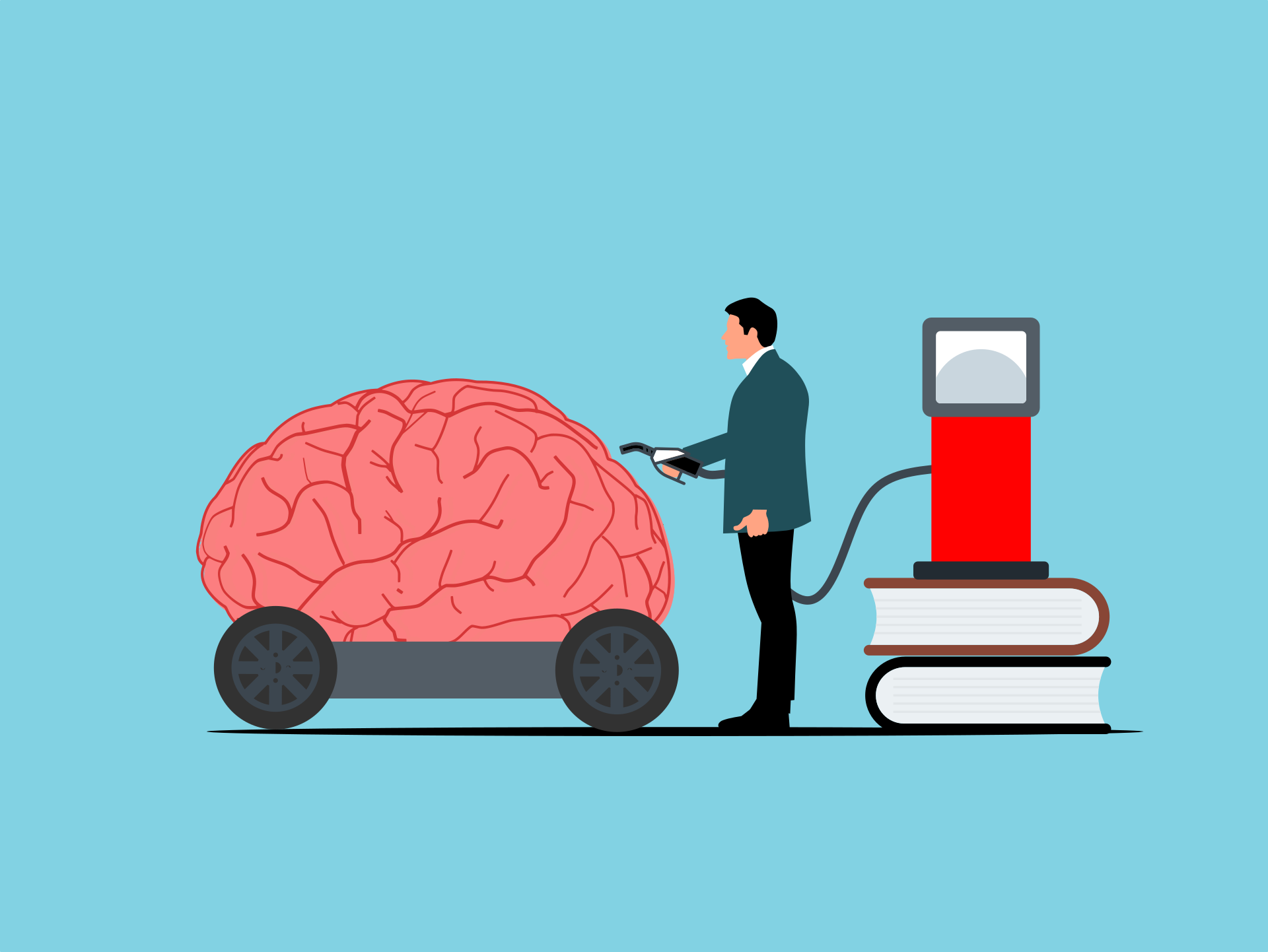
Important Insights from Related Books:
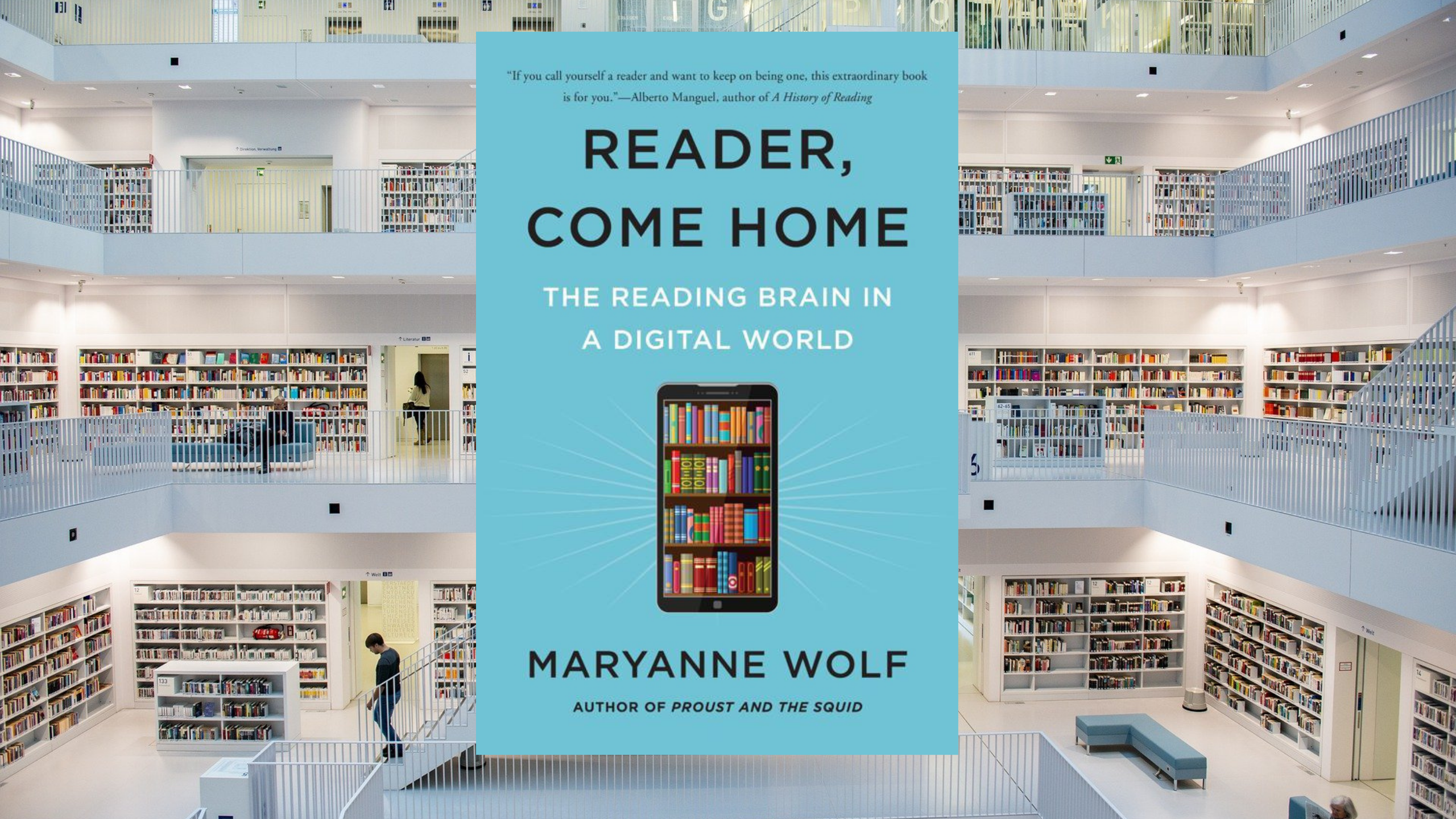
Reader, Come Home, by Maryanne Wolf:
Humans were never meant to read. No child is ever born with a gene that directly leads to literacy; the reading circuit has to be intentionally, and rigorously cultivated, especially in the early years, and nothing about that process is guaranteed.
The ability to read these words is nothing short of a miracle, and you're witnessing it right now in this very moment.
The human brain - this amazingly, vastly complex thing, this technology that you carry around in your head all day - somehow finds a way to connect the functions that already exist, like vision, language, pattern recognition, and more, and combines them in such a way that you're able to follow this sentence and decode its meaning.
Because the ability to read doesn't develop unless it's actively and effectively taught, the brain of a reader has completely different wiring from that of a non-literate person, with implications that follow a person throughout their entire lifespan.
In this book, Reader, Come Home, neuroscientist Maryanne Wolf traces the development - or lack thereof - of the reading circuit and extends her research into questions of what will happen to us as we shift from a literacy-based culture to a more digital one.
Sample Quotes from the Book:
“For more than four decades, one of the single most important predictors of later reading achievement has been how much parents read to their child.”
“What will happen to young readers who never meet and begin to understand the thoughts and feelings of someone totally different?”
“Do you, my reader, read with less attention and perhaps even less memory for what you have read? Do you notice when reading on a screen that you are increasingly reading for key words and skimming over the rest? Has this habit or style of screen reading bled over to your reading of hard copy?
Do you find yourself reading the same passage over and over to understand its meaning? Do you suspect when you write that your ability to express the crux of your thoughts is subtly slipping or diminished?
Have you become so inured to quick precis of information that you no longer feel the need or possess the time for your own analyses of this information? Do you find yourself gradually avoiding denser, more complex analyses, even those that are readily available?
Very important, are you less able to find the same enveloping pleasure you once derived from your former reading self? Have you, in fact, begun to suspect that you no longer have the cerebral patience to plow through a long and demanding article or book?
What if, one day, you pause and wonder if you yourself are truly changing and, worst of all, do not have the time to do a thing about it?"
Read the Full Breakdown: Reader, Come Home, by Maryanne Wolf
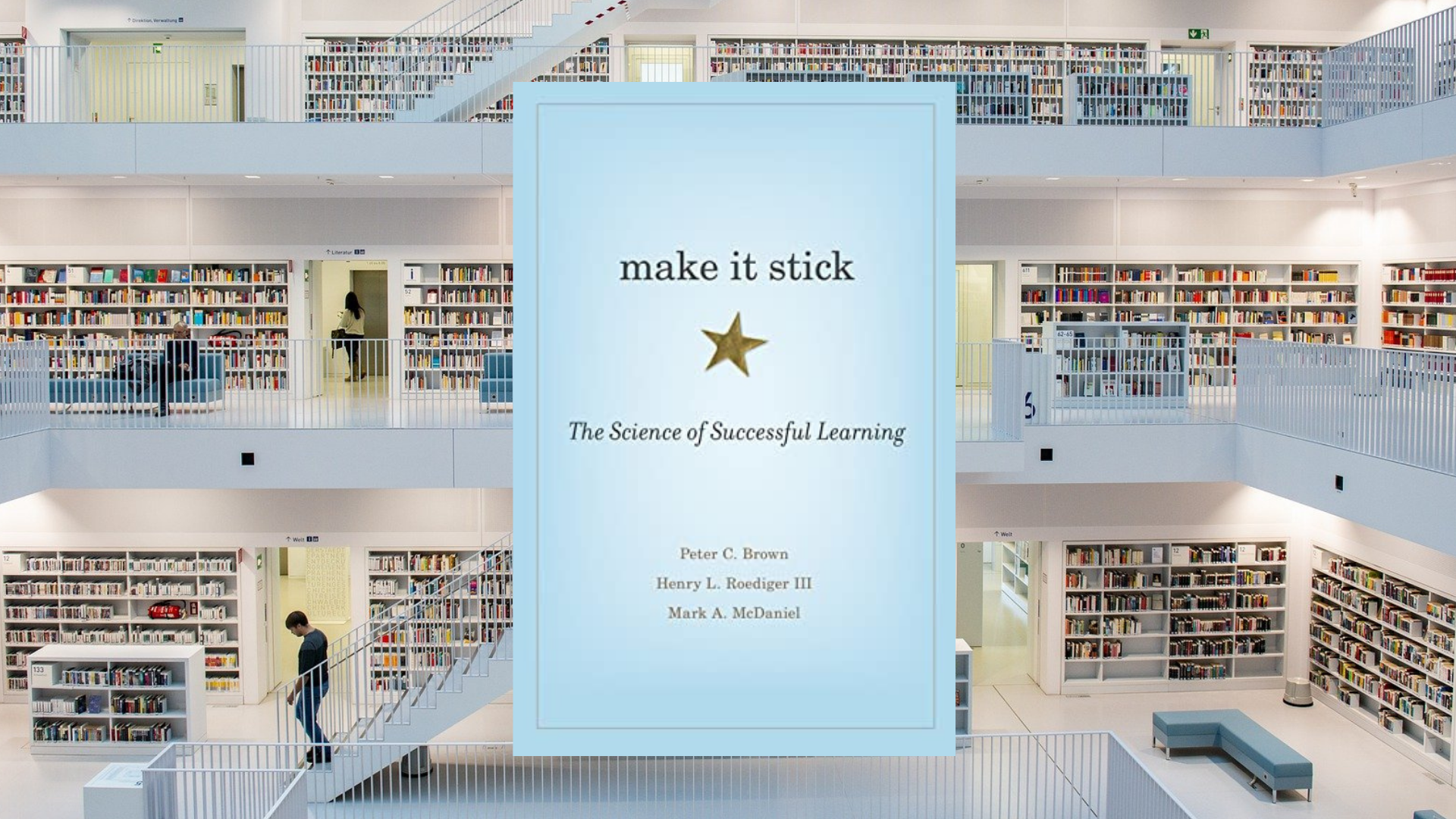
Make It Stick, by Peter C. Brown, Henry L. Roediger III, and Mark A. McDaniel:
“It comes down to the simple but no less profound truth that effortful learning changes the brain, building new connections and capability. This single fact - that our intellectual abilities are not fixed from birth but are, to a considerable degree, ours to shape - is a resounding answer to the nagging voice that too often asks us, 'Why bother?'
We make the effort because the effort itself extends the boundaries of our abilities. What we do shapes who we become and what we're capable of doing. The more we do, the more we can do."
-Make It Stick
Everything you want in life is on the other side of effort and sacrifice. In life, we appreciate what we worked hardest for, and in education, we remember what we struggled to learn.
That's one of the core messages in Make It Stick, which represents the gold standard when it comes to books about effective study strategies and efficient learning.
Basically, we remember the information that we recall to mind most frequently, and the more effortful it is to do so, the more entrenched it becomes in our minds and the less likely we are to forget it when we need to use it.
At the end of the day, the universe rewards effort, exertion, and striving. We need to go beyond what we think we can do if we want to find out how far we can really go.
This same theme - the hardest path usually being the best - shows up again and again in life, and Make It Stick will show you how applying that wisdom to your studying and your practicing will allow you to reach levels of mastery that are simply unavailable to people who aren't familiar with the science of successful learning.
Sample Quotes from the Book:
“Rereading text and massed practice of a skill or new knowledge are by far the preferred study strategies of learners of all stripes, but they're also among the least productive.
By massed practice, we mean the single-minded, rapid-fire repetition of something you're trying to burn into memory, the 'practice-practice-practice' of conventional wisdom. Cramming for exams is an example.
Rereading and massed practice give rise to feelings of fluency that are taken to be signs of mastery, but for true mastery or durability these strategies are largely a waste of time."
“Learning is at least a three-step process: initial encoding of information is held in short-term working memory before being consolidated into a cohesive representation of knowledge in long-term memory. Consolidation reorganizes and stabilizes memory traces, gives them meaning, and makes connections to past experiences and to other knowledge already stored in long-term memory. Retrieval updates learning and enables you to apply it when you need it."
“Students who have been quizzed have a double advantage over those who have not: a more accurate sense of what they know and don't know, and the strengthening of learning that accrues from retrieval practice."
Read the Full Breakdown: Make It Stick, by Peter C. Brown, Henry L. Roediger III, and Mark A. McDaniel
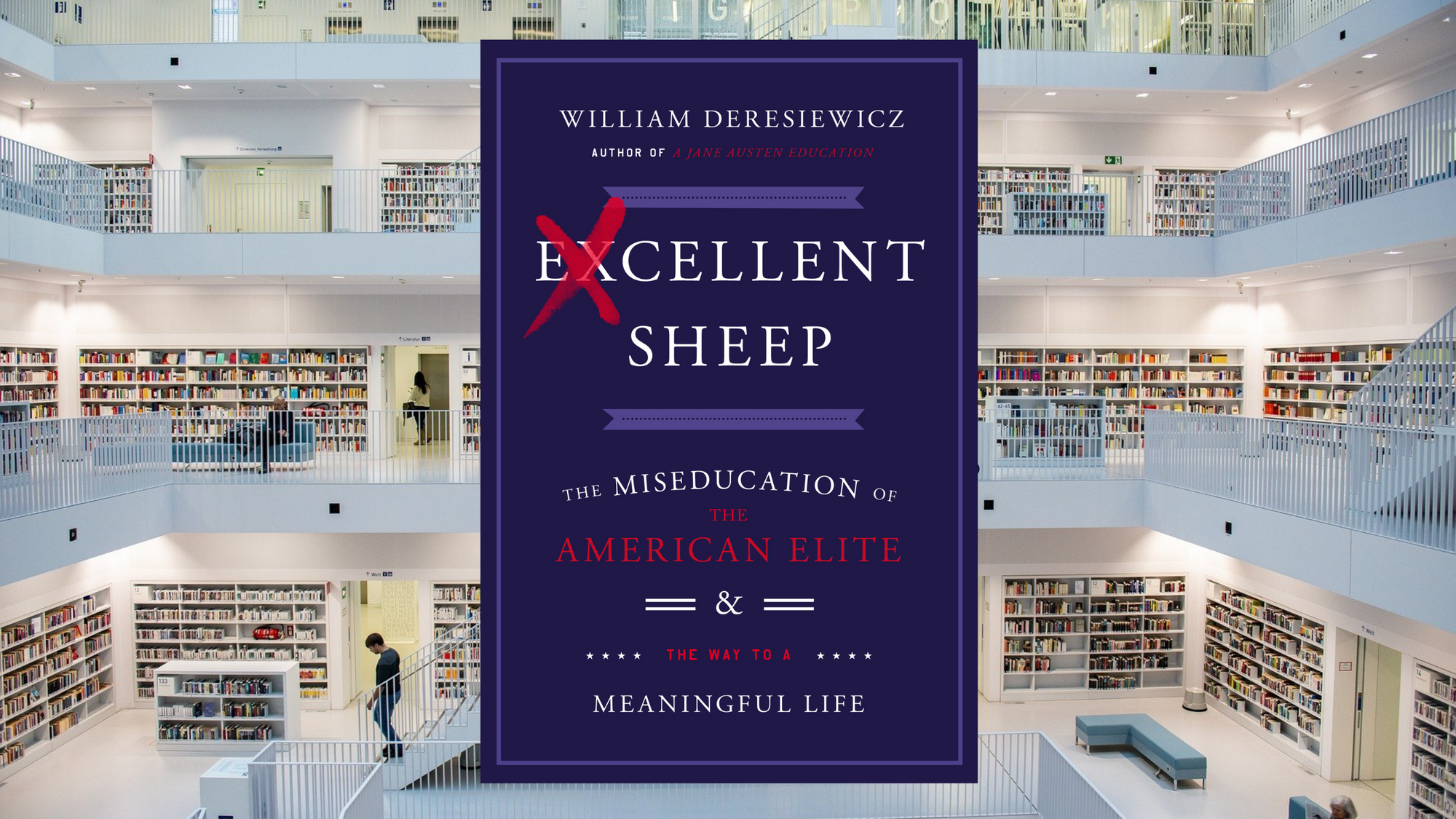
Excellent Sheep, by William Deresiewicz:
If you left university with just a degree and a pile of debt, you were robbed. Somewhere along the way, colleges and universities (I will be using the terms interchangeably) drifted away from being centers of higher learning and loci of self-discovery, into being commercialized profit-centers, and students themselves became "customers," or, worst of all, commodities.
William Deresiewicz is a former Yale professor with a deep, infectious passion for higher education, which is self-evident throughout Excellent Sheep and which leaps from every paragraph.
He cares; he cares so much, and his distress at the decline of educational standards in the United States and elsewhere is shared by myself and a multitude of other educators who know what school can really do.
Sample Quotes from the Book:
“The purpose of college, to put all this another way, is to turn adolescents into adults. You needn’t go to school for that, but if you’re going to be there anyway, then that’s the most important thing to get accomplished. That is the true education: accept no substitutes.
The idea that we should take the first four years of young adulthood and devote them to career preparation alone, neglecting every other part of life, is nothing short of an obscenity.
If that’s what people had you do, then you were robbed. And if you find yourself to be the same person at the end of college as you were at the beginning – the same beliefs, the same values, the same desires, the same goals for the same reasons – then you did it wrong. Go back and do it again.”
"Once admissions criteria change, the whole educational system will change. We want kids with resilience, self-reliance, independence of spirit, genuine curiosity and creativity, and a willingness to take risks and make mistakes."
“What’s the return on investment on college? What’s the return on investment of having children, spending time with friends, listening to music, reading a book? The things that are most worth doing are worth doing for their own sake.”
Read the Full Breakdown: Excellent Sheep, by William Deresiewicz
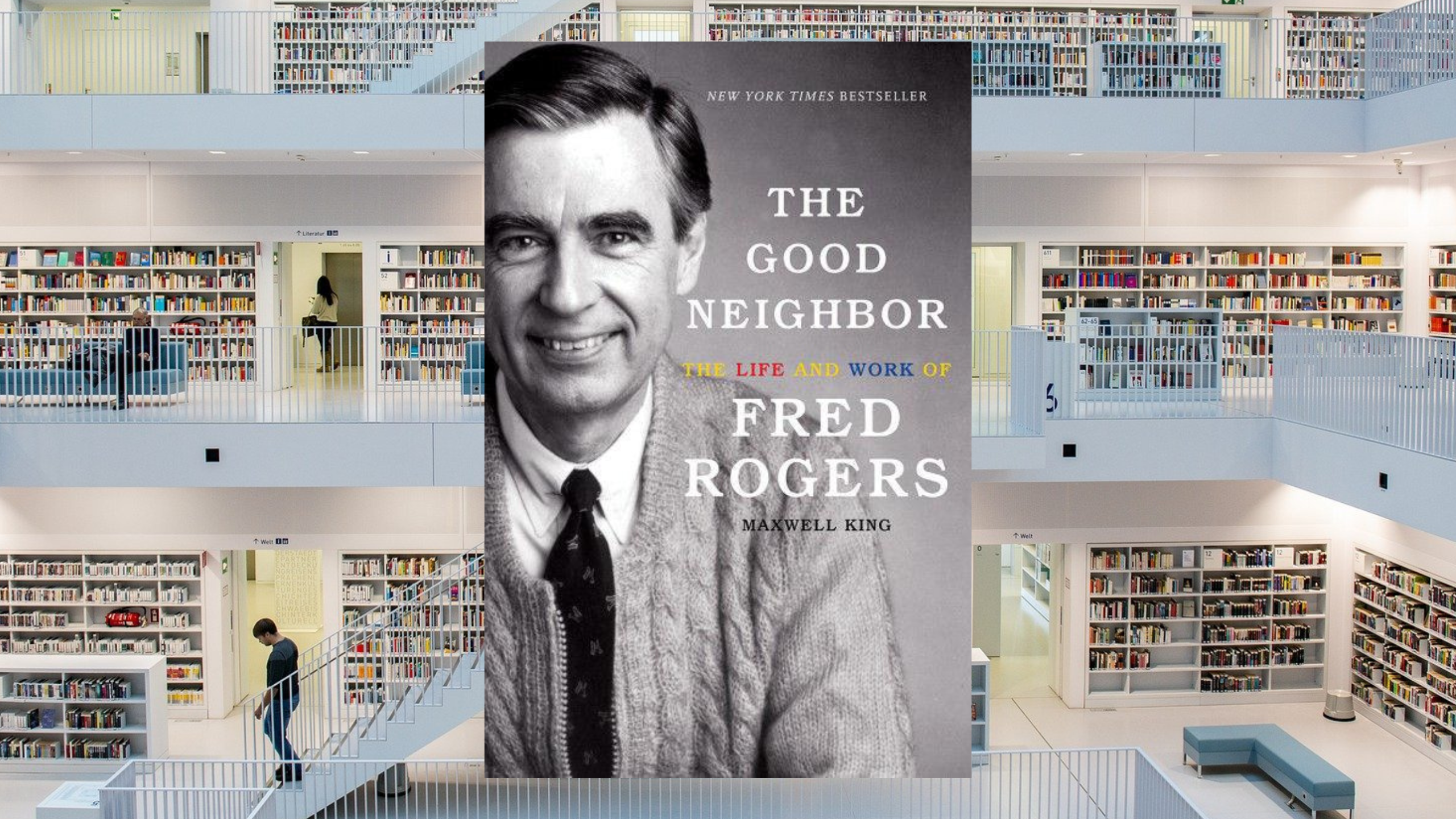
The Good Neighbor, by Maxwell King:
Children can sense when they're being devalued; they can sense when an adult truly and honestly cares for them and when they don't, and they can always, always spot a fraud. Fred Rogers, or Mister Rogers to all of his television friends, was one of the most inspiring early childhood educators ever, and he brought his message of care, affection, and unconditional love to millions of children over the course of his 50-year career in broadcasting. He was the real deal, and children could feel it.
The Good Neighbor is a biography of Fred Rogers, one with astonishing personal stories on nearly every page. Like the time when Oprah lost control of her own television show during a taping because every child in the audience was so powerfully drawn to Mister Rogers; or when the TV station held an event where children could come and meet Mister Rogers, and thousands of kids showed up, lining up for miles and blocking the street like it was a college football game or something.
However, no matter how long the line was, he would always, always get down on one knee, look each kid in the eye, and make sure they knew that they mattered. He took kids and their questions seriously, and he saw the best in them, which made it possible for them to bring out the best in themselves.
Sample Quotes from the Book:
“For Fred Rogers, it was always this way when he was with children, in person, or on his hugely influential program. Every weekday, this soft-spoken man talked directly into the camera to address his television ‘neighbors’ in the audience as he changed from his street clothes into his iconic cardigan and sneakers.
Children responded so powerfully, so completely, to Rogers that everything else in their world seemed to fall away as he sang, ‘It’s a beautiful day in the neighborhood.’ Then his preschool-age fans knew that he was fully engaged as Mister Rogers, their adult friend who valued his viewers ‘just the way you are.’”
“And then when the money ran out, people in Boston and Pittsburgh and Chicago all came to the fore and said we’ve got to have more of this neighborhood expression of care. And this is what – this is what I give. I give an expression of care every day to each child, to help him realize that he is unique.
I end the program by saying, ‘You’ve made this day a special day, by just your being you. There’s no person in the whole world like you, and I like you, just the way you are.’ And I feel that if we in public television can only make it clear that feelings are mentionable and manageable, we will have done a great service for mental health.”
-Fred Rogers, testifying before the Senate on behalf of public television in 1969
“The first week of Mister Rogers’ Neighborhood saw Mister Rogers enjoying a home visit from Mrs. Saunders, an African American teacher, and a small interracial group of her students. It was a simple visit with a hard-hitting message: whites and blacks live, study, and play together in the Neighborhood.”
Read the Full Breakdown: The Good Neighbor, by Maxwell King

The View from the Opposition:
No one's ideas are beyond questioning. In this section, I argue the case for the opposition and raise some points you might wish to evaluate for yourself while reading this book.
#1: For a Book About Reading, It's Pretty Damn Hard to Read
This isn't a criticism of the material itself - or even, really her style of presenting it - but rather a recognition of the fact that it does get fairly technical, and it is by no means an "easy" read.
Even relatively smart people will have to read certain passages more slowly than others in order to really "get it."
That being said, it's a book about the neuroscience of reading, so I mean really, what did you expect? She also says in the book that she is more comfortable with academic writing, and it's clearly a little bit of a challenge for her to make her brain research and other sources more digestible for general audiences.
This doesn't mean that you shouldn't read it; indeed, I'm very much in favor of challenging yourself with your reading every so often and attempting to read something a little bit more difficult than you're used to.
Overall, this book shouldn't intimidate you, and it's definitely accessible for more general audiences, although some people will have to work harder than others, and there's definitely an "ideal reader" of this book who is more versed in scientific concepts and brain anatomy than most people are.
However, the very structure of the brain is such that we can learn to read harder texts, and if you're going to challenge yourself with a book, you may as well make it this one!
"The test of a first-rate intelligence is the ability to hold two opposed ideas in the mind at the same time and still retain the ability to function.”
-F. Scott Fitzgerald

Questions to Stimulate Your Thinking:
The quality of your life is determined by the quality of your questions. That's also how you get the absolute most out of any book that you decide to read:
You ask great questions the whole time - as though the book was on trial for its life.
Here in this section are a few questions that can help guide and stimulate your thinking, but try to come up with your own additional questions, especially if you end up deciding to read this book the whole way through...
#1: "Before reading this book (or this breakdown), did you believe that the capacities of the brain were relatively fixed? How might that view shape your approach to education or to your life in general? What will you do now that you know the brain changes and rearranges itself based on the experiences it undergoes?"
#2: "Since the development of reading and writing was never genetically guaranteed, what are just a few of the ways that it might never have happened at all? Does thinking about them give you a new appreciation for the miracle of reading?"
#3: "Do you remember when you were first learning to read, and specifically when you realized that those weird, squiggly lines actually meant something and pointed to a world? What's your first memory of learning to read? Who helped make it possible?"
#4: "Are you or can you become a reading role model for someone else? How can you inspire others by demonstrating the power of books and literature to change lives?"
#5: "Do you suffer from dyslexia or know anyone who does? How did it affect their experience at school, either their own performance or how they were treated by parents or teachers?"
#6: "Are screens, digital media, and the shortening of attention spans a threat to the future of literacy and reading? What can be done to reverse these trends?"
#7: "How do you think reading will evolve in the future, either in the next 100 years or the next million?"
#8: "What can we do to positively impact the future of education? What changes would you make to the current system and why?"
#9: "Do you ever challenge yourself by trying to read books that are at least a little bit more difficult than the ones you normally read? Do you think it's possible that you could actually rise to the challenge, and perhaps even surprise yourself with your own ability to read and understand harder books?"
#10: "How many great books or other wonderful masterpieces were never created, or even conceived, simply because the boy or girl who would have grown up to create them never received the proper education, instruction, and support?"
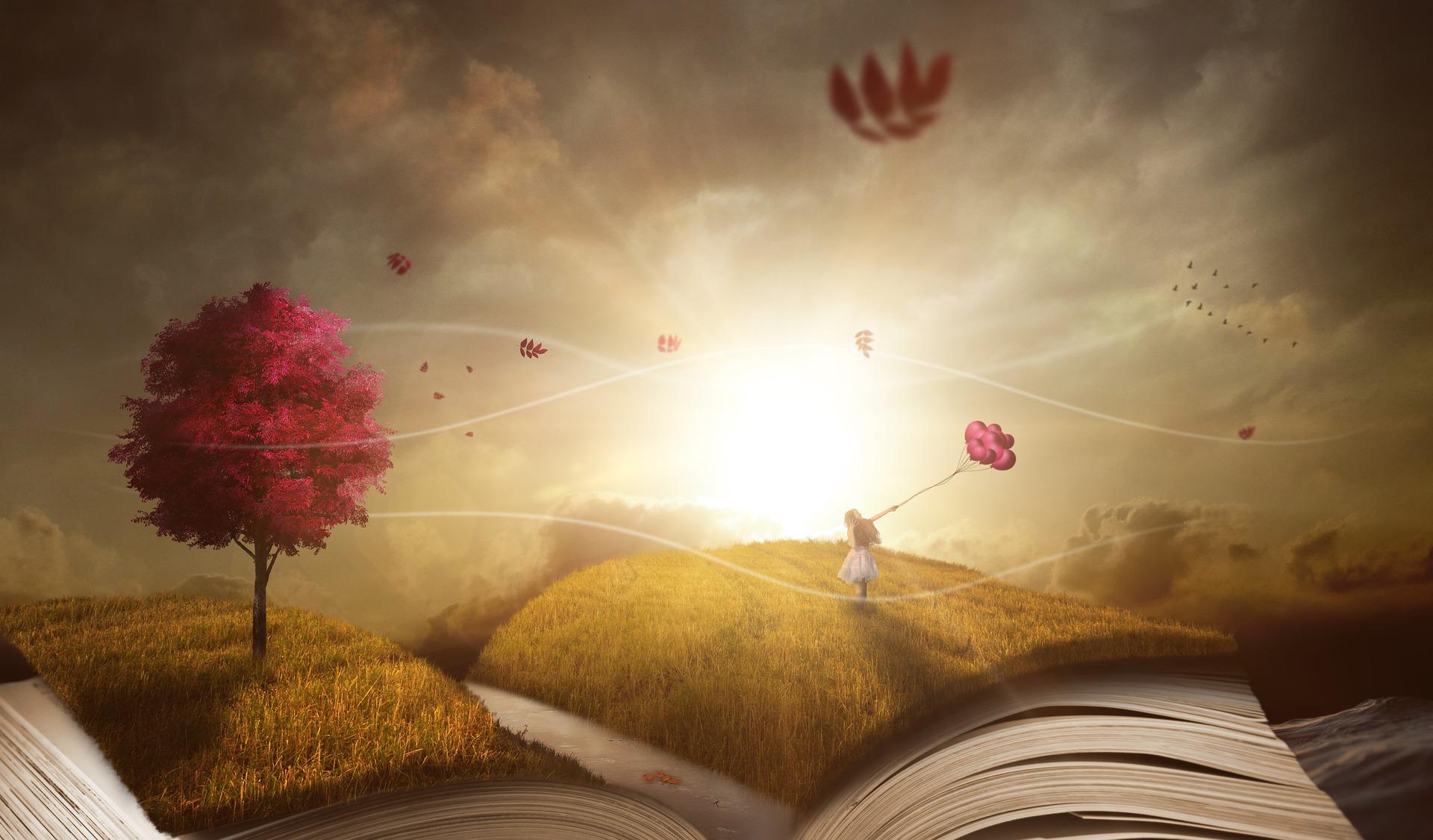
Action Steps:
So you've finished reading. What do you do now?
Reading for pleasure is great, and I wholeheartedly support it. However, I am intensely practical when I'm reading for a particular purpose. I want a result. I want to take what I've learned and apply it to my one and only life to make it better!
Because that's really what the Great Books all say. They all say: "You must change your life!" So here, below, are some suggestions for how you can apply the wisdom found in this breakdown to improve your actual life.
Please commit to taking massive action on this immediately! Acting on what you've learned here today will also help you solidify it in your long-term memory. So there's a double benefit! Let's begin...
#1: Read to Your Kids! Every! Single! Night!
“European children who were asked to begin to learn to read at age five did less well than those who began to learn at age seven. What we conclude from this research is that the many efforts to teach a child to read before four or five years of age are biologically precipitate and potentially counterproductive for many children."
I always hate to give parenting advice, because I don't have any kids of my own. It's almost like taking financial advice from broke people - don't do it! BUT, I think I'm justified here in expressing how absolutely critical it is that you read to your kids as often and for as long as possible. And get them started early!
I know it's hard to find the time every night, but it's one of the single best things that you could ever do for your kids to give them the best possible start in life.
You don't have kids? Doesn't matter! Find some, borrow some, make some - and then READ to them!
#2: Lead by Example
There's a great cartoon I saw once, where two women and their kids are sitting on a bench. One woman is using her phone, while her kid is on their phone sitting next to her. The second woman, however, is reading a book, and her kid is also reading a book. Maybe you can sense where I'm going with this.
Well, the woman who's on her phone turns to the one who's reading a book and asks, "How do you get your child to read books?"
It's funny because we know exactly what the woman reading a book is going to say! When kids see adults doing something, they usually want to imitate their behavior. So if your kids see you reading - and if you have books all over the house - your kids are going to take after you! They're much more likely to become readers if you're a reader yourself.
Not only that, but some of my best memories are of me talking to my mom about the books we were reading! Her office is stacked floor-to-ceiling with books, my dad is a reader, and they've bent over backward to make sure that I always had access to any book I wanted.
They let me watch TV too, but they made books seem like a good idea, and they did this by showing me their example. Maybe the first woman on the bench was reading an ebook, but let's not get into that discussion!
#3: Donate to First Book.
One thing that I've started doing is donating 10% of my personal profits from the Stairway to Wisdom to First Book, in order to help them provide books for every child who wants one.
Taken from their website, this is what they do:
"First Book Canada’s mission is to transform the lives of children in need by improving access to educational opportunities.
Through a market-driven model, First Book Canada is creating equal access to quality education — making everything from brand new, high-quality books and educational resources, to winter coats, backpacks, and more – affordable to its member network of more than 10,000 educators who exclusively serve kids in need.
First Book Canada members work in classrooms, after school and summer or early childhood programs, shelters and health clinics, libraries, community programs, and other settings serving a majority of children in need.
Since 2009, First Book Canada has distributed more than 7 million books and educational resources to programs and schools serving children from low-income families in Canada. First Book Canada currently reaches hundreds of thousands of children every year."
Sign me up! First Book could certainly use your help, so please consider making a regular donation if you can! There's also an American branch of First Book, so if you'd rather donate to them they could certainly use your help as well!

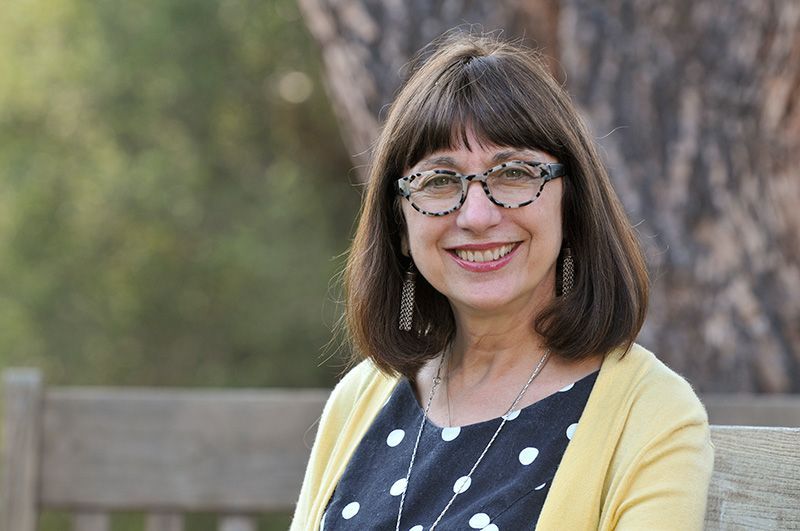
About the Author:
Maryanne Wolf completed her doctorate at Harvard University, in the Department of Human Development and Psychology in the Graduate School of Education, where she began her work in cognitive neuroscience and psycholinguistics on the reading brain, language, and dyslexia.
She has undergraduate and Master's degrees in English Literature from St. Mary's College/Notre Dame and Northwestern University. The author of more than 160 scientific articles, she designed the RAVE-O reading intervention for children with dyslexia, and with Martha Denckla, co-authored the RAN/RAS naming speed tests, a major predictor of dyslexia across all languages.
Among her awards are the Fulbright Fellowship, the Chapman University Presidential Fellow, the Norman Geschwind and Samuel Orton Awards (the highest honors from the International Dyslexia Association), the Distinguished Teacher of the Year awards from the state and national American Psychological Association, the Eminent Researcher of the Year Award for Learning Disabilities (Australia), and both the Alice Ansara and the Windward Researcher of the Year award for her research on dyslexia. With Maureen Lovett and Robin Morris, she received the NICHD Shannon Award for Innovative Research. She received the Christopher Columbus award for Intellectual Innovation for her work as co-founder of Curious Learning, a global literacy initiative with deployments in Africa, India, Australia, and the rural United States, and the Einstein Award from The Dyslexia Foundation for her work in dyslexia.
She was a Fellow (2014-2015) and Research Affiliate (2016-2017) at the Center for Advanced Study in the Behavioral Sciences at Stanford University. She is currently working with members of the Dyslexia Center in the UCSF School of Medicine and the faculty at Chapman University on issues related to dyslexia and is an External Advisor to the International Monetary Fund, a research advisor to the Canadian Children’s Literacy Foundation, and a frequent speaker at the Pontifical Academy of Sciences.
Additional Resources:
Maryanne Wolf's Brief Synopsis of Proust and the Squid
The "Three Lives" of the Good Reader
How the Reading Brain Teaches Us to Raise Literate Minds
Literacy is a Basic Human Right
This Book on Amazon:
Proust and the Squid, by Maryanne Wolf
If You Liked This Book:
Reader, Come Home, by Maryanne Wolf
The Reading Life, by C.S. Lewis
Flowers for Algernon, by Daniel Keyes
Thinking, Fast and Slow, by Daniel Kahneman
Excellent Sheep, by William Deresiewicz
